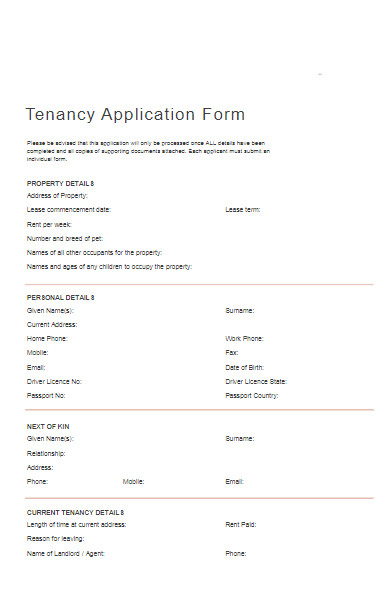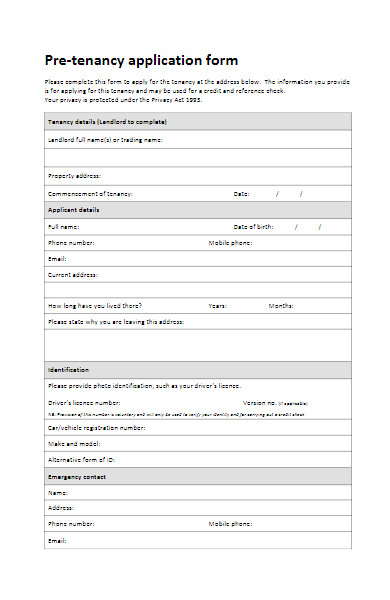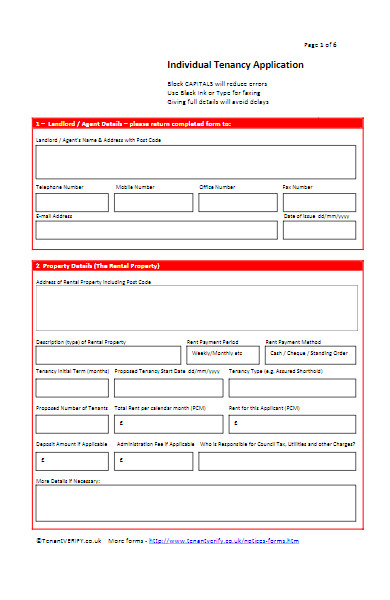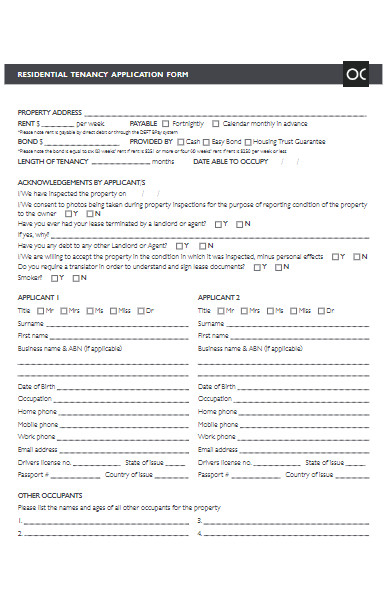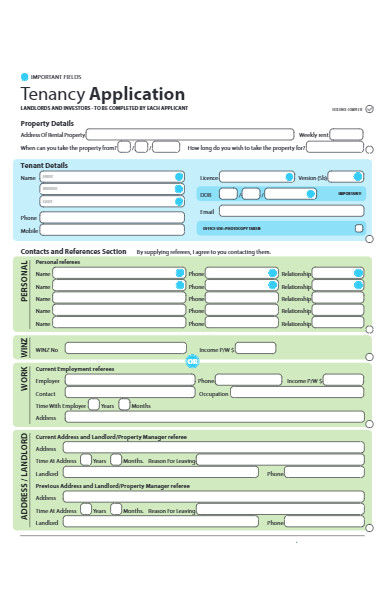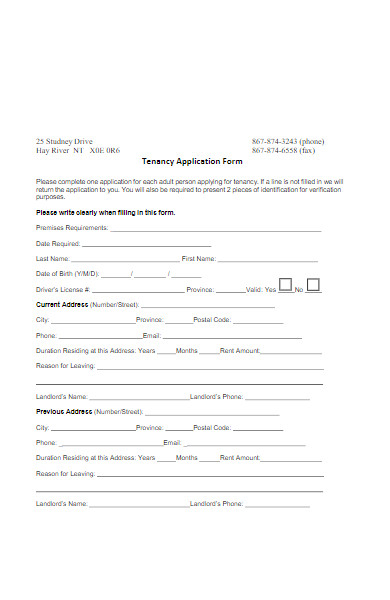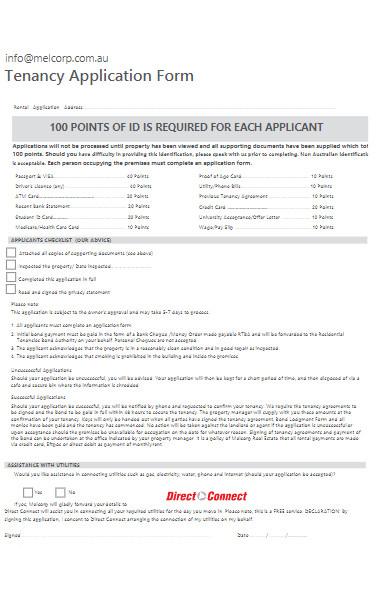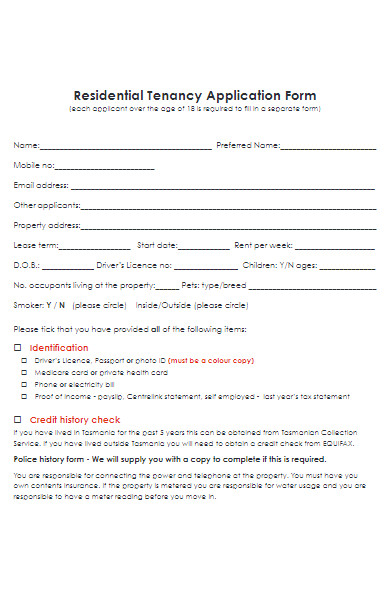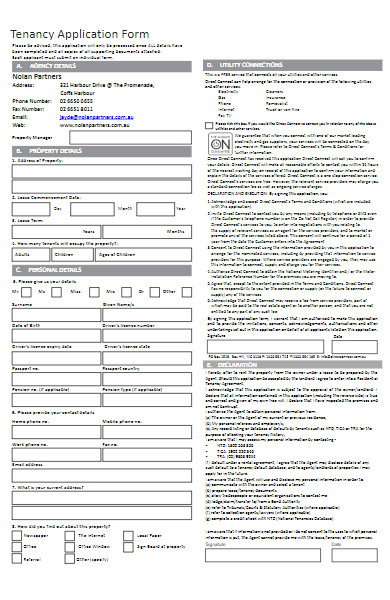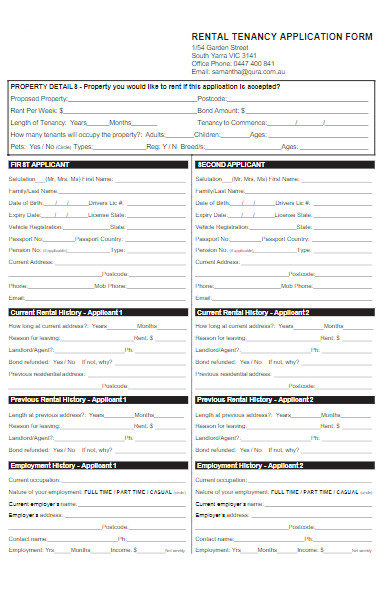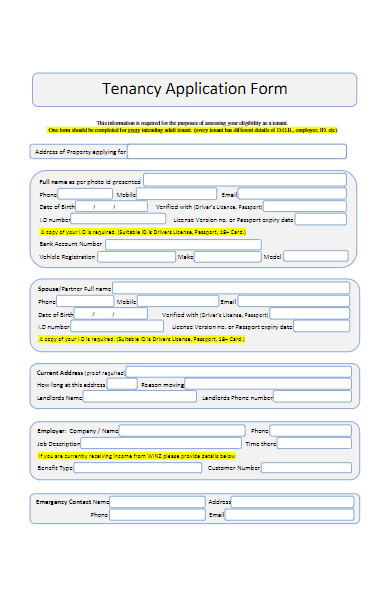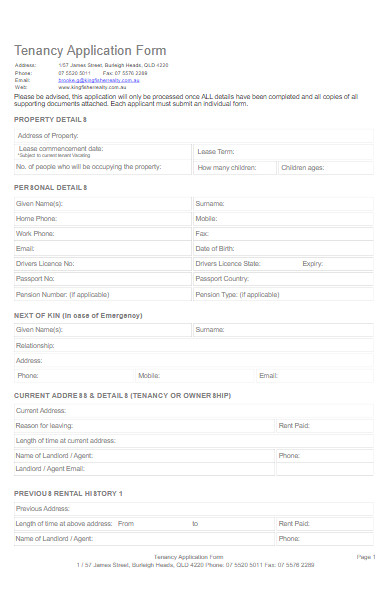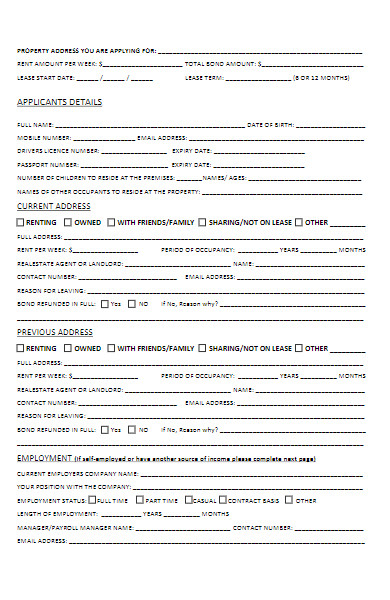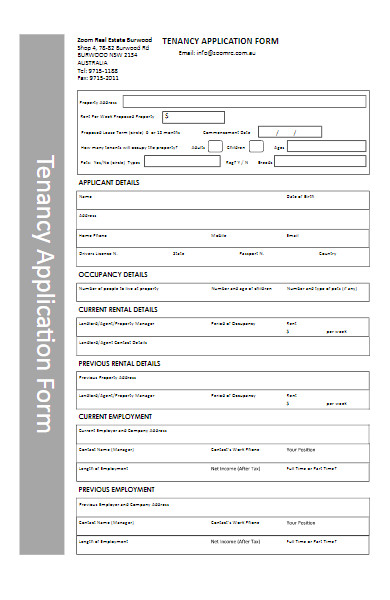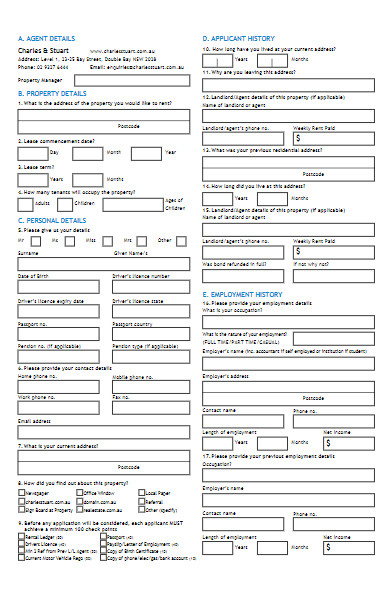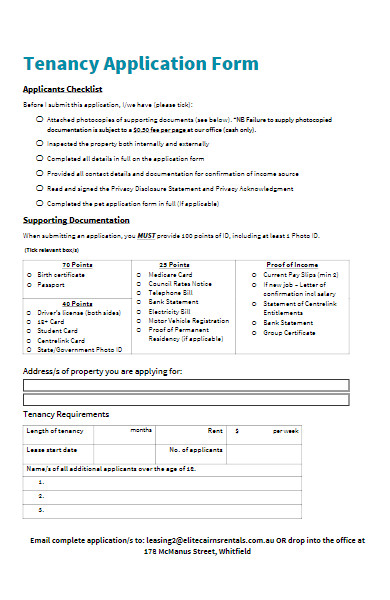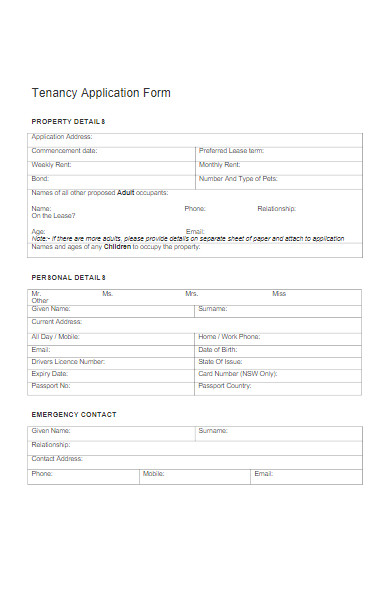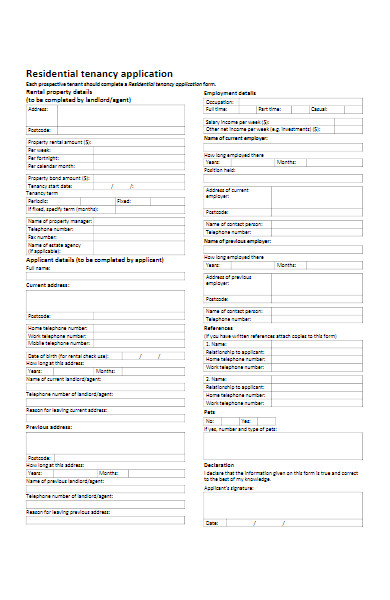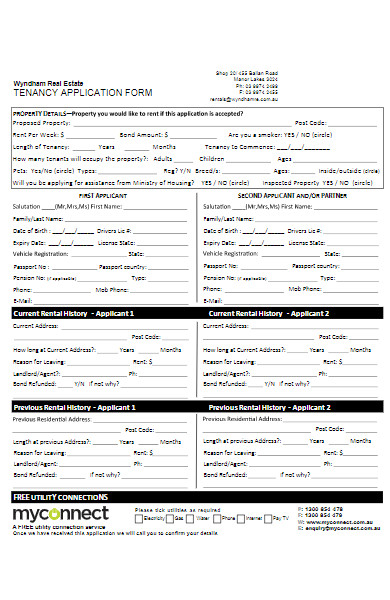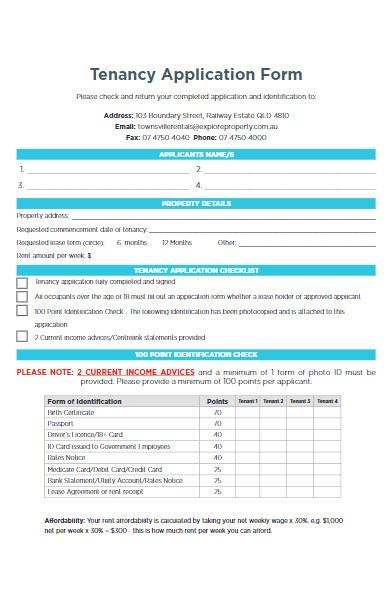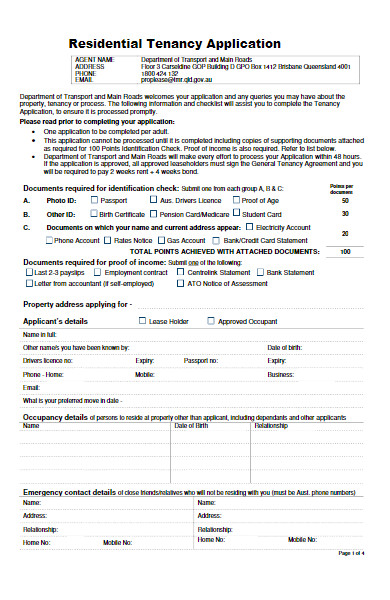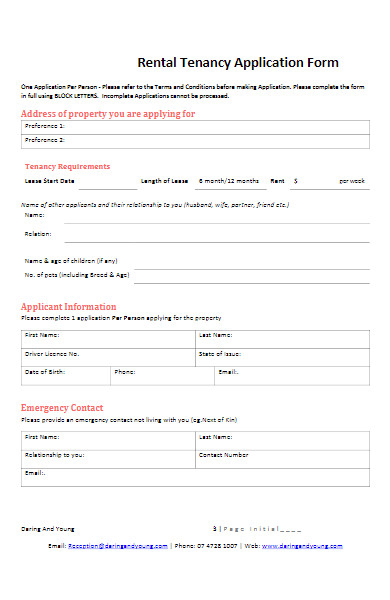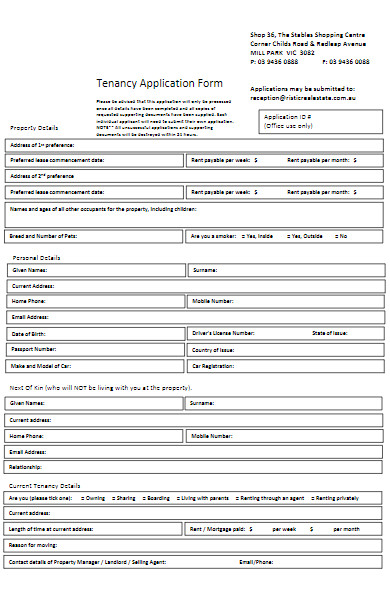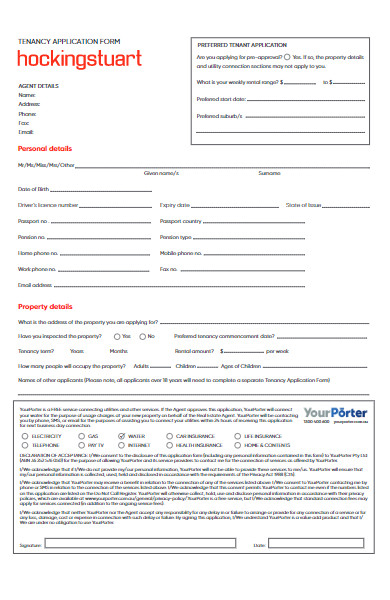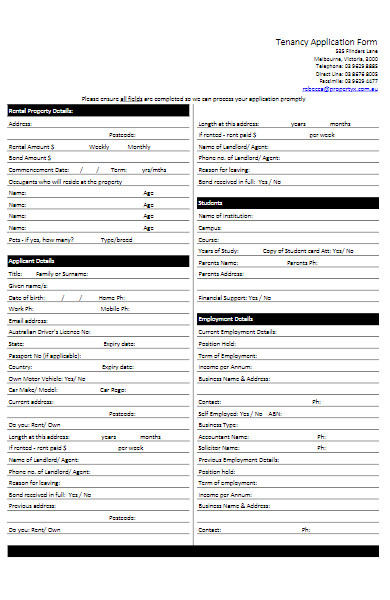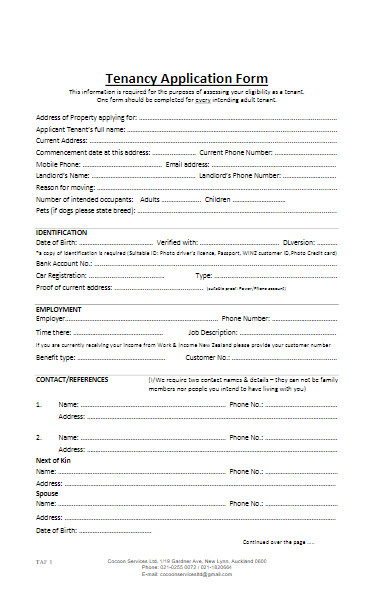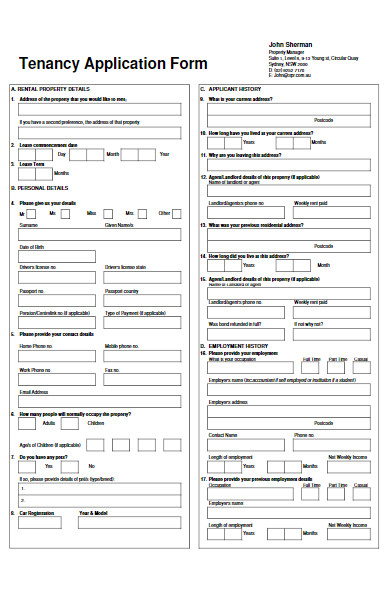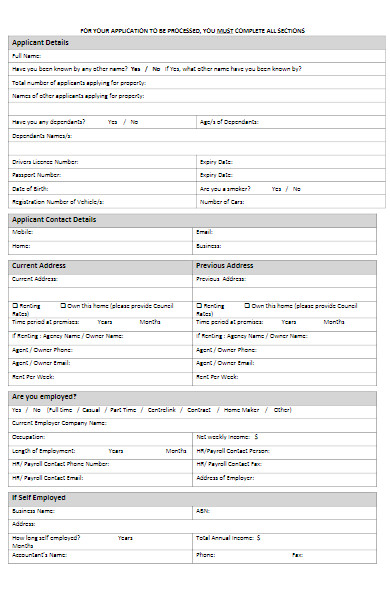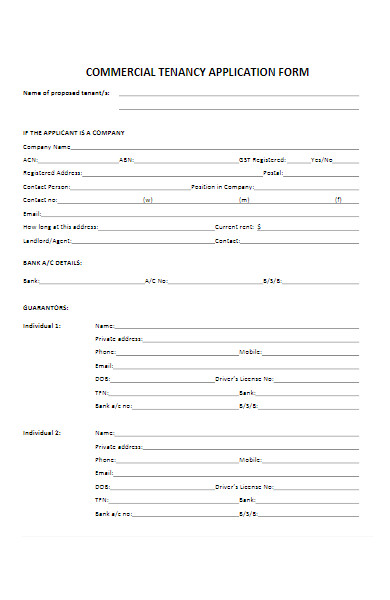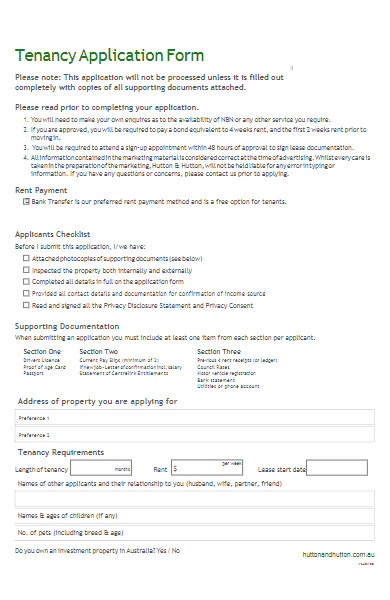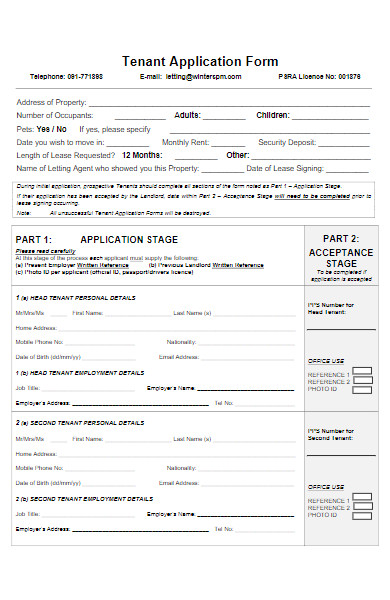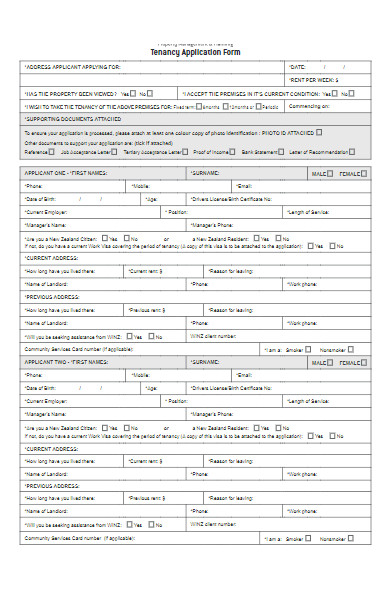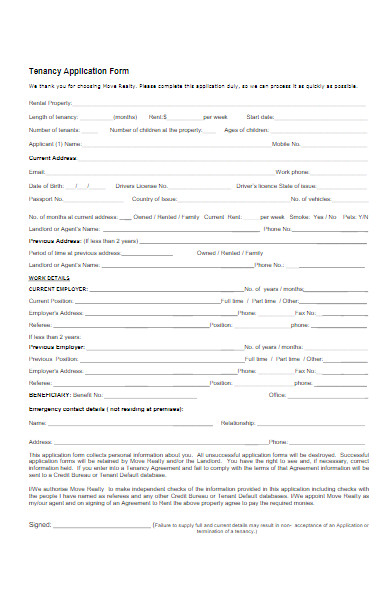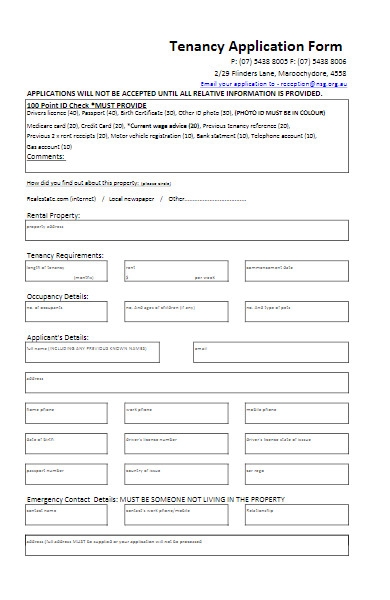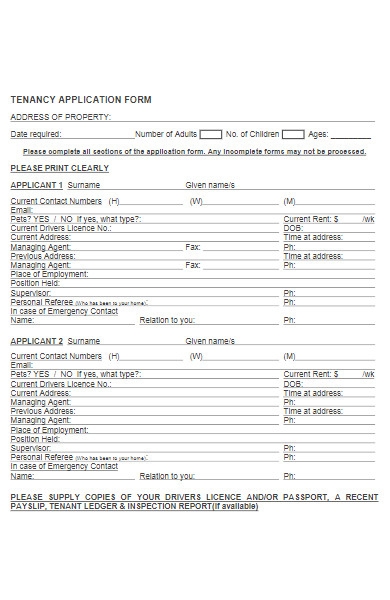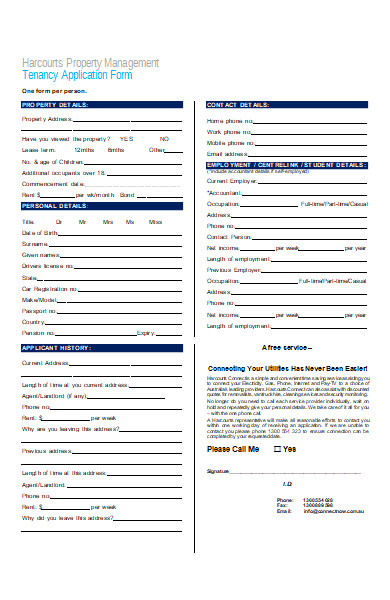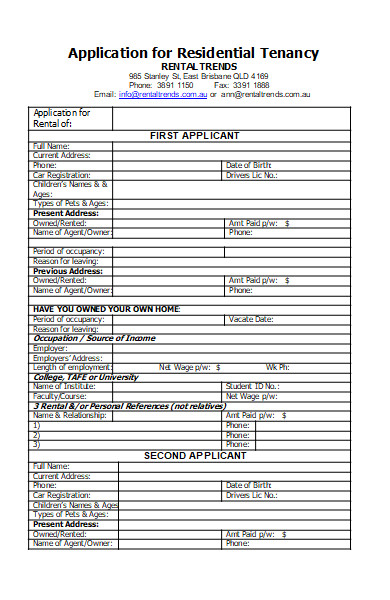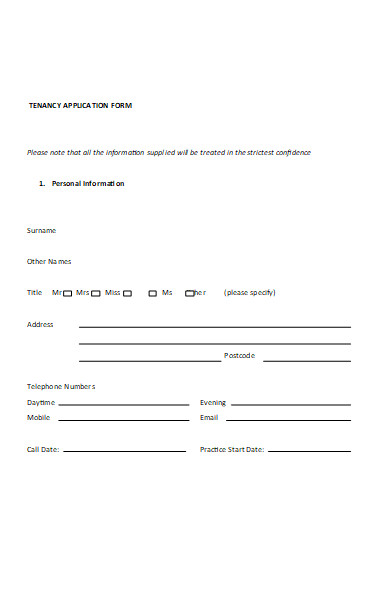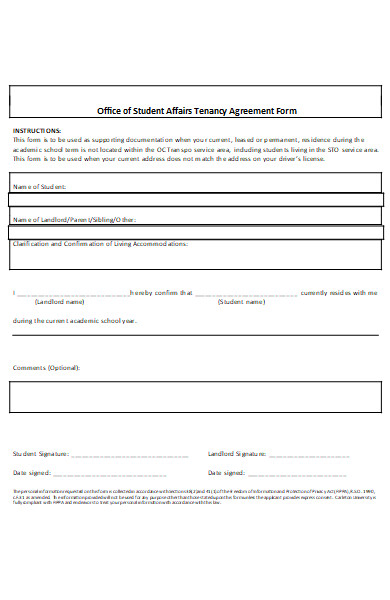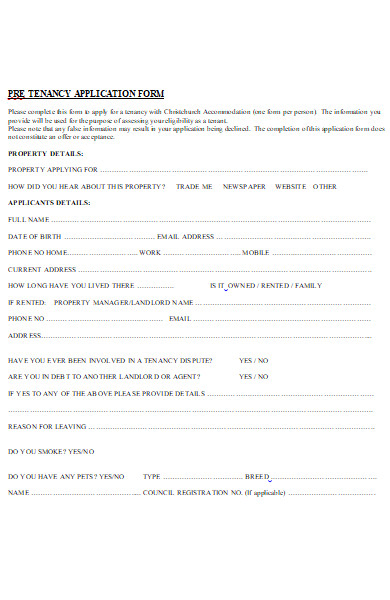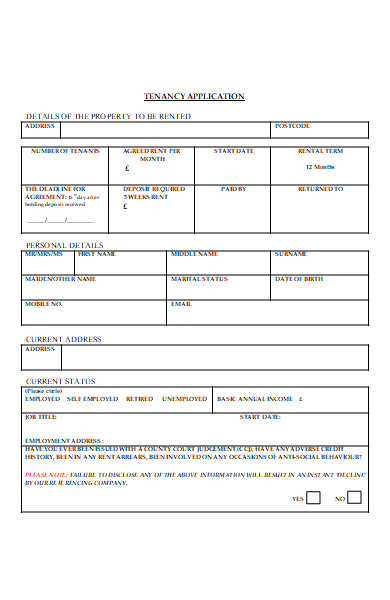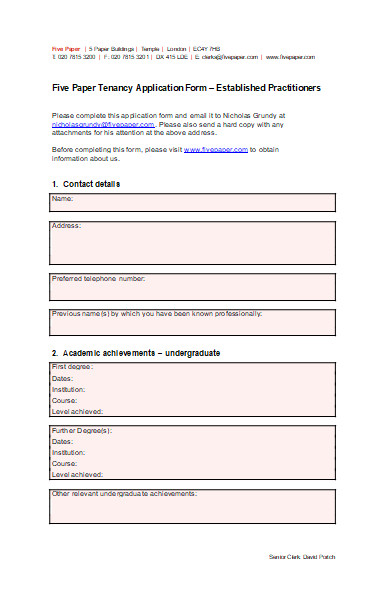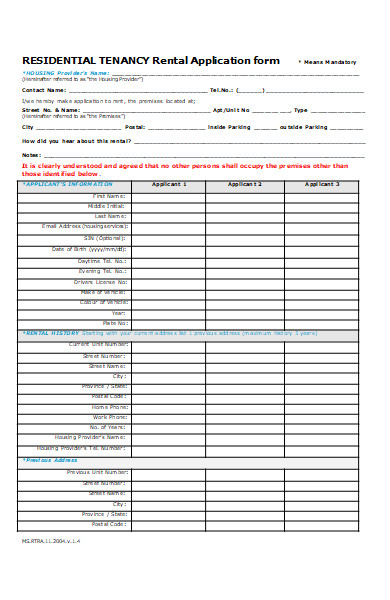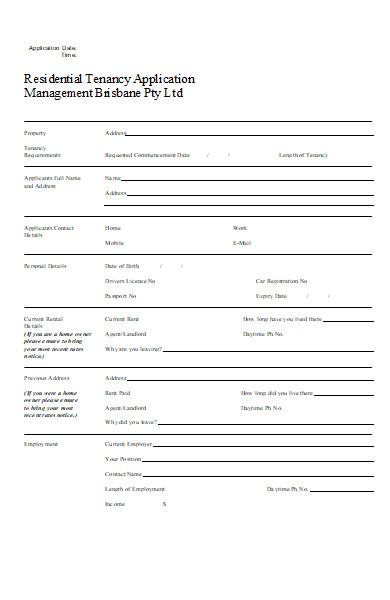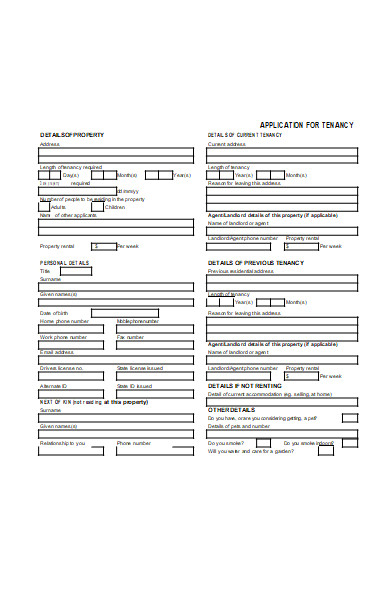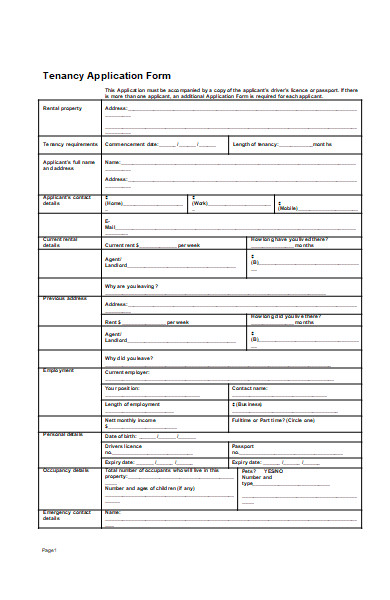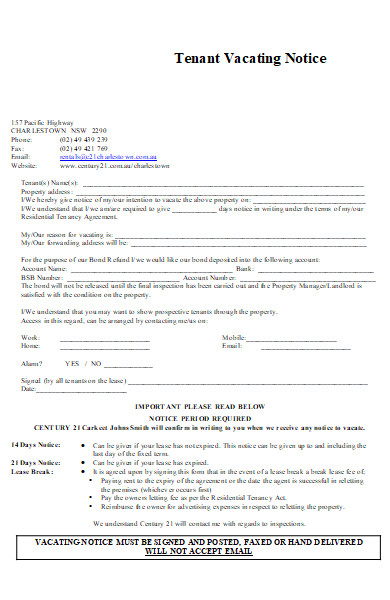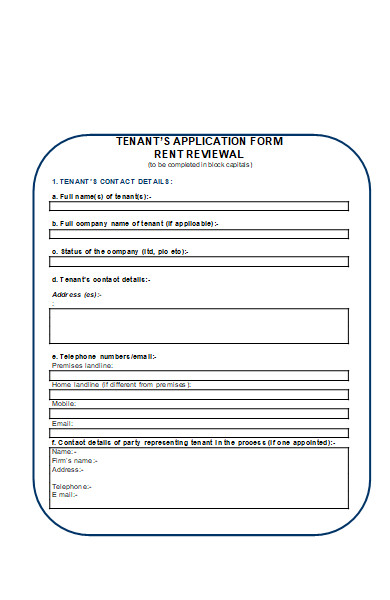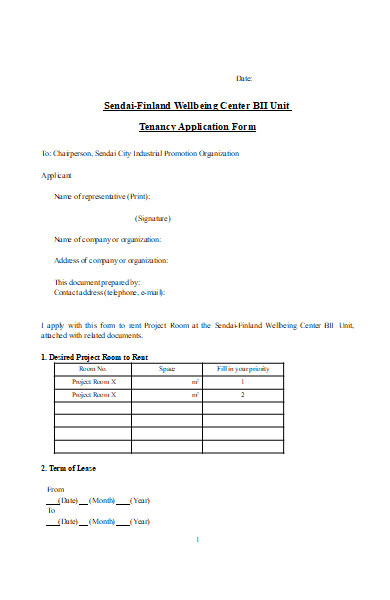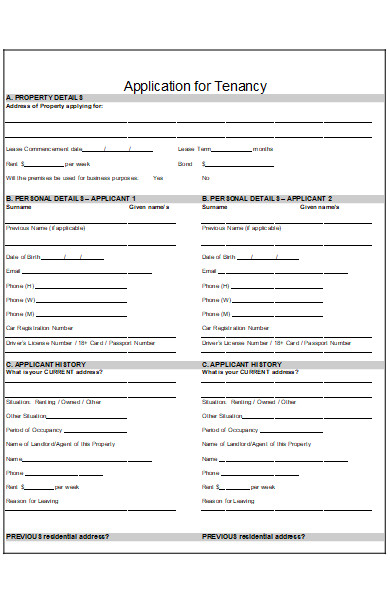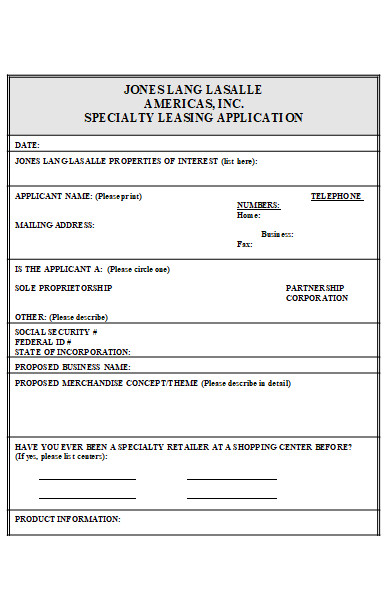Tenancy happens when people move from one place to another. The reason could be work, study, business, or all of the above. Because of that, leasing has become an efficient means of having a place to stay temporarily. From the property owner’s perspective, it is best to know the tenants before considering them as leasers. And to do that, the tenant has to complete a tenancy application form. Find out more about this form in this article.
FREE 50+ Tenancy Application Forms in PDF | MS Word
What Is a Tenancy Application Form?
A tenancy application form is a document used to screen rental applicants, especially by a property owner. It assesses the applicant’s background, rental history, and employment before moving into the property. For several reasons, there are 898,479 tenants evicted by their landlords in 2016, based on a report by Eviction Lab. Hence, screening potential renters are better than allowing people who are incapable of following the tenancy agreement.
Why Is Tenancy Application Form Important?
Bad tenants are one of the risks you have to face if you own a rental property. That is why assessing potential renters is important before letting them lease your property. This way, you can prevent risking your business from any harmful incidents. And using a tenancy application form is your way around this. It allows the landlord to determine whether a potential tenant is fit to rent the property or not. This is the property owner’s opportunity to ask a series of legal questions, which are essential in obtaining a clear history of the tenant’s background.
Can a Landlord Decide Who to Lease a Property To?
There are legally acceptable guidelines for tenancy application a landlord can use to qualify or disqualify a potential tenant. These tell the property owner whether a potential leaser will likely be a good renter or not. Also, if uneventful things happen and the tenant skips out on rent, the landlord can ask a series of questions to determine where the tenant may relocate.
Tenancy Red Flags: The Things You Should Avoid
Apart from the obvious indicators (income, bad tenant background, etc.), there are less noticeable details that may point to a bad renter. For a landlord, knowing these areas may be the only opportunity to avoid a bad tenant. However, you do not have to be a genius to determine red flags on a tenancy application. Although these do not automatically disqualify applicants, red flags will reduce the credibility of a potential tenant. Below are the red flags that you should know:
1. Unverifiable Source of Income
It is alarming if an applicant lists an unverifiable income source. That said, the landlord should not just take the applicant’s word for this; he must verify if the prospective tenant can afford the rental amount. Verifying income means viewing the applicant’s paystub, bank statement, tax returns, or directly consulting his employer.
If the applicant cannot verify his income, there are three possibilities to keep an eye on: He could be lying about his income. It is also possible that the income source is from illicit activities. Or, the applicant does not report income to avoid taxation.
2. Missing Contact Details of Current or Previous Landlord
The best way to move forward with the applicant who will be a good tenant is to ask current or previous landlords for feedback. It tells a lot about the applicant—relative to how he or she will be as your tenant. Know if the applicant had an issue paying the rent, and verify if the applicant provided the correct details of a previous landlord. Thus, you should insist on getting the information you need if the applicant is hesitant to tell the full story.
3. Frequent Changes of Residence
Renters who have unusual transitory behavior are more likely to spend less time renting from you too. It is an issue if you are looking for stable, long-term tenants. A landlord can identify this through a tenancy application form with multiple addresses. However, sometimes, moving around so much becomes reasonable if required for the applicant’s employment, family issues, or studies. So, understand the reason why an applicant moves a lot because you cannot reject him only because of that.
4. Applicant Breaking the Lease
Pay more attention to asking why the applicant is leaving his or her current residence. After that, make sure to get in touch with the applicant’s current landlord. If you found out that he or she is breaking the lease, the applicant could be unpredictable and unreliable. Tenants who have bad tenancy records are not good for your property. They will put you in a tight situation that will lead to a property vacancy or, worse, damage to your property. Avoid this by requiring them to complete a rental application form and contacting references.
5. Credit Score Report
An applicant’s credit record is a crucial part of the tenancy application. It allows a landlord to see a renter’s financial history. Also, a high credit score means that an applicant is responsible for paying his bills. A landlord is permissible to view an applicant’s credit reports. Thus, make sure to access account details from public records. If not, there is no guarantee that the record is accurate. Chances of altering credit records are possible, and you should not fall into this pit of lies.
The Booming Global House Marketing
Homeownership is one of the universal signs of success. It serves as a source of stable housing and long term investment. But, housing prices depend on every country and city. According to a report from Statista.com, Hong Kong had the most expensive housing price in 2018, with the average residential property costing about 1.24 million US dollars. Singapore came second in the ranking, while Shanghai is leading the global housing market, with 11.2 percent growth between 2017 and 2018.
Meanwhile, although many like to own their home, some have no choice but to reside in a rental property temporarily. Unlike housing prices, the rental market offers more affordable properties. Even housing prices in the United States have been increasing in the past years, and New York remains notorious for having expensive rentals. Based on a report by Statista.com as of 2018, New Yorker renters pay around 2,844 US dollars per average unit.
How Do You Craft a Tenancy Application Form?
A completed tenancy application form is an important document for both landlord and potential renter. It helps in protecting the property from any potential risks. So, if you are to make one, make sure it is easy-to-use and comprehensible. Below are easy steps that will help you make a tenancy application form:
Step 1: Start with the Important Information
The first step in crafting a tenancy application form is to ask for the applicant’s personal details. This section includes the applicant’s name, current lease address, date of birth, and contact information. Asking for these details is beneficial to your business. One of the advantages is it can hasten the application process, on top of knowing the applicant’s tenancy background. Moreover, keeping a record of your tenant’s history will be beneficial for future leasing transactions. Or, if things go wrong, you have the documents to process any legal action.
Step 2: Download an Editable Form Template
Using a form template is optional. But if you opt to use one, you can get one from our list. Downloading a template has many advantages. One of these is the editable suggested content you can customize in different applications. And, you can produce a professional-looking output with it. On the other hand, you can start from scratch if you prefer to focus on the process rather than the results. Either way, you will develop an effective tenancy form as long as you know the basics of creating the document.
Step 3: Draft the Form and Provide the Required Fields
One of the fundamentals when it comes to tasks is planning. This inclines to draft the form before diving directly to the actual document. The draft will serve as a canvas of the tenancy form, where you can temporarily layout the content. More so, providing the required fields is also part of the plan. These fields are the spaces where the user can fill in the needed details. Furthermore, include labels into the form—heading, title, logo, and more. It will guide the user through the form and makes the process flow smoothly.
Step 4: Let the Applicant Sign the Application
Some tenancy application forms get rejected, and there are perfectly logical reasons why. An unsigned application form may result from a bad rental background or low credit scores. The major reason some tenancy application forms get rejected is that the applicant does not qualify with the landlord’s guidelines and standards. Still, the final decision relies on the property owner’s hands. One or another, signing the application form signifies the correctness of the information the user wrote in the form. Additionally, it authorizes the release of information along with other names in the tenancy form.
FAQs
Is the tenancy application form considered as an agreement?
No. A landlord can make a separate document for a rental agreement that legally binds him with the applicants. Other than that, a tenancy application form is solely for determining if a potential renter is worthy of leasing the property.
What happens if the applicant does not sign the tenancy application form?
The tenancy application form will become null and void if the applicant does not sign it. The transaction will subsequently be canceled, including the permission to conduct background checks and view the income account.
What should I do if a tenancy application is rejected?
Some reasons could reject a tenancy application form. If that happens, you should professionally deal with the situation by sending a denial letter to the applicant. It should clearly and politely explain the grounds of rejecting the application.
Jane Austen once said, “There is nothing like staying at home for real comfort.” Sadly, the circumstances of the modern world sometimes make individuals feel comfortable in a place they do not own. However, this does not mean they will forever be staying in a temporary home—complying with the rules in a tenancy application prepares a person for greater responsibilities brought by owning a house. So, see to it that you abide by the qualifications set out by the tenancy application form.
Related Posts
FREE 46+ Application Forms in PDF MS Word | Excel
FREE 7+ Sample Landlord Reference Forms in MS Word PDF
FREE 9+ Sample Rental Application Forms in PDF MS Word
FREE 26+ Rental Application Forms in PDF Excel | MS Word
FREE 35+ Tenant Application Forms in PDF MS Word
FREE 11+ Rental Application Forms in PDF MS Word | Excel
FREE 9+ Holding Deposit Agreement Forms in PDF MS Word
FREE 10+ Sample Apartment Application Forms in PDF MS Word ...
FREE 51+ Application Forms in PDF MS Word | Excel
FREE 7+ Sample Tenancy Agreement Forms in MS Word PDF
FREE 11+ Sample Tenant Information Forms in PDF MS Word | Excel
FREE 33+ Sample Application Forms in PDF MS Word | Excel
FREE 9+ Sample Rent Application Forms in PDF MS Word
FREE 11+ Sample Real Estate Application Forms in PDF Excel ...
FREE 9+ Sample Tenant Questionnaire Forms in MS Word PDF

